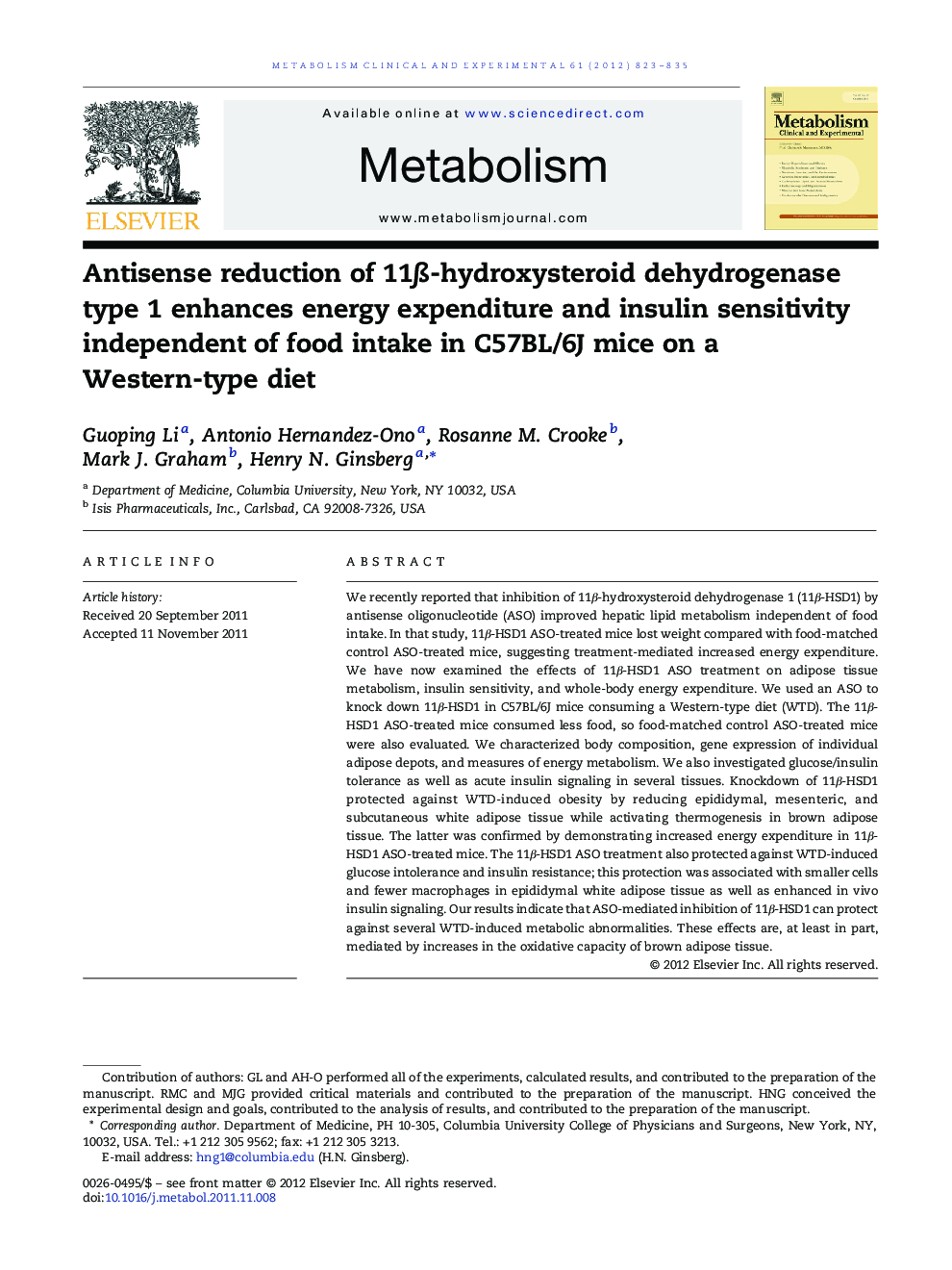| Article ID | Journal | Published Year | Pages | File Type |
|---|---|---|---|---|
| 2805893 | Metabolism | 2012 | 13 Pages |
We recently reported that inhibition of 11β-hydroxysteroid dehydrogenase 1 (11β-HSD1) by antisense oligonucleotide (ASO) improved hepatic lipid metabolism independent of food intake. In that study, 11β-HSD1 ASO-treated mice lost weight compared with food-matched control ASO-treated mice, suggesting treatment-mediated increased energy expenditure. We have now examined the effects of 11β-HSD1 ASO treatment on adipose tissue metabolism, insulin sensitivity, and whole-body energy expenditure. We used an ASO to knock down 11β-HSD1 in C57BL/6J mice consuming a Western-type diet (WTD). The 11β-HSD1 ASO-treated mice consumed less food, so food-matched control ASO-treated mice were also evaluated. We characterized body composition, gene expression of individual adipose depots, and measures of energy metabolism. We also investigated glucose/insulin tolerance as well as acute insulin signaling in several tissues. Knockdown of 11β-HSD1 protected against WTD-induced obesity by reducing epididymal, mesenteric, and subcutaneous white adipose tissue while activating thermogenesis in brown adipose tissue. The latter was confirmed by demonstrating increased energy expenditure in 11β-HSD1 ASO-treated mice. The 11β-HSD1 ASO treatment also protected against WTD-induced glucose intolerance and insulin resistance; this protection was associated with smaller cells and fewer macrophages in epididymal white adipose tissue as well as enhanced in vivo insulin signaling. Our results indicate that ASO-mediated inhibition of 11β-HSD1 can protect against several WTD-induced metabolic abnormalities. These effects are, at least in part, mediated by increases in the oxidative capacity of brown adipose tissue.
